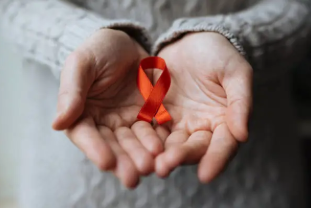World AIDS Day: increased awareness and testing will reduce transmission

Ahead of World AIDS Day on 1 December, the Public Health Agency (PHA) is encouraging increased public awareness, education and testing to ensure the progress made with HIV continues.
Dr Rachel Coyle, Public Health Consultant at the PHA, said: “Earlier this year the PHA was there when Northern Ireland was officially declared a Fast Track Region, signing a declaration aimed at reaching zero new HIV diagnoses by 2030. Fast-Track Cities is a global partnership involving cities and municipalities around the world.
“New treatments for HIV can stop transmission and can mean that someone who is diagnosed early can live a healthy life. But achieving the Fast Track Cities goals relies on ending HIV stigma, through education and awareness, and ensuring access to HIV testing and treatment.”
The latest figures in the ‘HIV surveillance in Northern Ireland 2023’ report, show there are 1,368 people who are living with a HIV diagnosis in Northern Ireland and have accessed HIV-related care in 2023. Of these individuals, 99.6% were on treatment for HIV and 97% had an undetectable viral load – these figures show clear progress towards the Fast Track Cities goals. There were 101 new diagnoses in 2023 in Northern Ireland. This includes both people who have been diagnosed with HIV for the first time here, and people who have already been diagnosed with HIV moving to Northern Ireland.
Dr Rachel Coyle, continued: “The developments in HIV treatment and care over the past few decades are astonishing. Today, someone diagnosed early with HIV will be able to access highly effective treatment, for free, which means they can lead a full and healthy life. Someone on this treatment cannot pass HIV to a sexual partner or anyone else. HIV is not a barrier to having relationships, to having children or to leading a full and healthy life.
“However, we know that stigma is still a major issue. Incorrect information still persists about HIV and the fantastic progress made in HIV care isn’t as well known as it should be. “We also know that in Northern Ireland around one quarter of new HIV diagnoses were made at a late stage, and a person diagnosed later is more likely to be experiencing health issues. Early access to testing is critical to support early diagnosis and allow people to access treatment. The availability of testing for HIV and other STIs has been increased in recent years to make it more accessible, and we have seen an increase in the number of tests which are being done, which is good news. You can get a home testing kit for HIV and STIs, which is completely free, discreet and confidential. Kits can be ordered at www.sh24.org.uk”
For information on the symptoms of HIV and STIs, as well as information on conditions which may have no symptoms, and for details of Northern Ireland GUM clinics, visit www.sexualhealthni.info and www.nidirect.gov.uk/articles/sexual-health
The latest statistics relating to HIV diagnoses will be available on Friday 29th November on www.publichealth.hscni.net The Fast-Track Cities initiative is a global partnership between cities and municipalities around the world and four core partners – the International Association of Providers of AIDS Care (IAPAC), the Joint United Nations Programme on HIV/AIDS (UNAIDS), the United Nations Human Settlements Programme (UN-Habitat), and the City of Paris.
